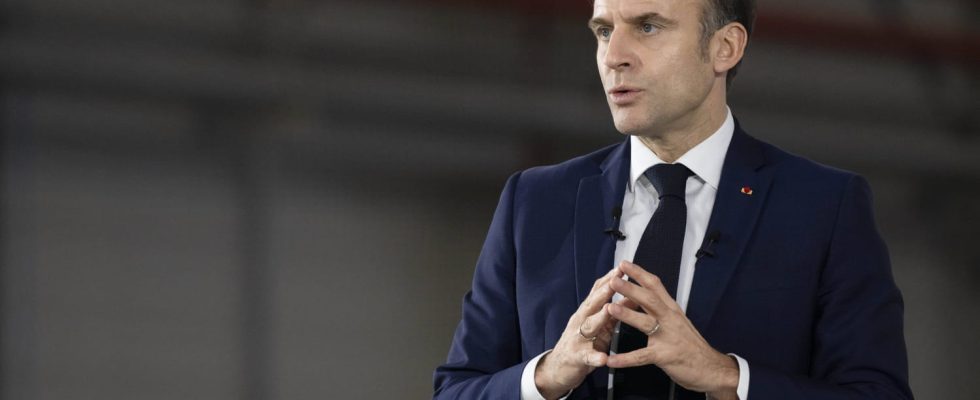Emmanuel Macron proposes a new Global Climate Pact around seven pillars in an article published this Friday in the newspaper Le Monde.
While the international context is very tense with a new wave of Russian strikes affecting several Ukrainian cities, including kyiv and Lviv, but also the situation in the Middle East and the Israel-Hamas war, Emmanuel Macron reminds the international community, in a column published on The worldthis Friday, December 29 that this situation must not “make us deviate from our priorities: reducing our carbon dioxide (CO2) emissions, aiming for carbon neutrality in 2050, saving our biodiversity and fighting against poverty and inequality”.
To achieve the objectives set, the President of the French Republic is banking on a new Global Climate Pact, which will involve developing countries. “The keystone of this strategy is that we must accelerate at the same time in terms of the ecological transition and the fight against poverty, because no country will agree to place its population in a social and economical to protect the planet”, explains Emmanuel Macronin his tribune.
Environmental and financial objectives
This Global Climate Pact is based on a seven-pillar strategy. The tenant of the Elysée first calls China, the United States, Japan, Germany, United Kingdom, Canada, Italy and France to “get out of coal in 2030, get out of oil in 2045 and get out of gas in 2050”. If the G7 countries aim to phase out coal in 2030, France will do so from 2027.
Emmanuel Macron then wants to “accelerate the financing of renewable energies but also of nuclear energy” in emerging countries to limit their coal consumption. For the French president, we must “address the threat of coal as a priority”, and not only for the G7 countries. The protection of the oceans is also an objective set by the President of the Republic. To do this, he wants to ban plastic pollution and better protect the seabed. Decisions could be taken in 2025 at a summit in Nice.
The Head of State also proposes using finances to encourage businesses to respect the Paris agreements. Lower interest rates will be offered to finance “green” projects while they will be higher if they are linked to fossil energy. But that’s not all. Emmanuel Macron aims to open the financial system to emerging countries “to help them finance their transition, access green technologies and adapt to climate change”.
Finally, he believes that a reform of the carbon market is necessary “to avoid greenwashing” and better remunerate the countries which have the largest reserves of carbon and biodiversity. Financial changes for States and companies which could take place with the help of the World Bank and the IMF “which have an eminent role in financing the ecological transition on a global scale”. Will Emmanuel Macron’s call be heard?
